The 7th Xiamen Symposium on Marine Environmental Sciences (XMAS 2025) was successfully held in Xiamen from 14 to 17 January 2025, initiated by the State Key Laboratory of Marine Environmental Science (Xiamen University), and co-sponsored by the Department of Earth Sciences of the National Natural Science Foundation of China. The symposium focused on the theme of “Transformative Science and Technology for a Sustainable Ocean”, and brought together scientists from all over the world to inspire new ideas for sustainable development.
COASTAL-SOS at XMAS 2025 - Review
Workshop on COASTAL-SOS Thailand:
Tackling Eutrophication-Hypoxia in the Upper Gulf of Thailand
COASTAL-SOS, or “Coastal Zones Under Intensifying Human Activities and Changing Climate: A Regional Programme Integrating Science, Management and Society to Support Ocean Sustainability”, is an endorsed project of the United Nations Decade of Ocean Science for Sustainable Development, which aims to promote the practical integration of science, management and social engagement, focusing on the East Asian Seas to provide solutions for the sustainable development of the region's coastal zones.
At XMAS 2025, COASTAL SOS hosted a workshop for the Upper Gulf of Thailand, focusing on eutrophication-hypoxia. Many scientists from China and Thailand discussed the formation, status and impacts of the eutrophication-hypoxia problem in the region from their respective research areas, including socio-economic factors affecting the water quality, distribution of methane and nitrous oxide, spatial and temporal distribution of nitrogen compounds in the surface sediments, groundwater discharge, and coastal water quality monitoring and early warning. In addition, scientists from the Second Institute of Oceanography shared their experience in monitoring and managing hypoxia and deoxygenation in the Yangtze River estuary in China. After the presentation, the participating experts discussed the next steps to further address the eutrophication-hypoxia problem in the upper Gulf of Thailand.
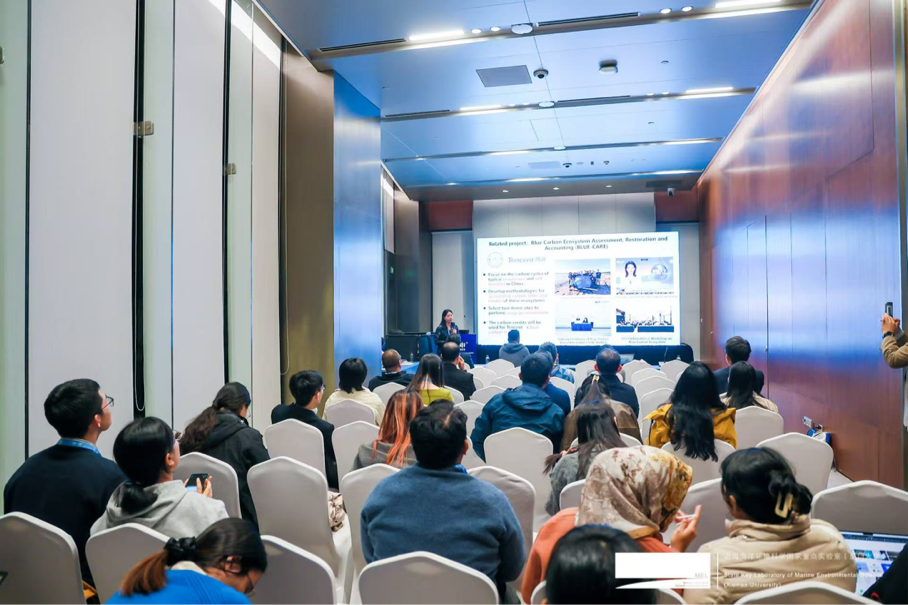
Introduction to Coastal-SOS by Dr. Hongmei Chen from Xiamen University
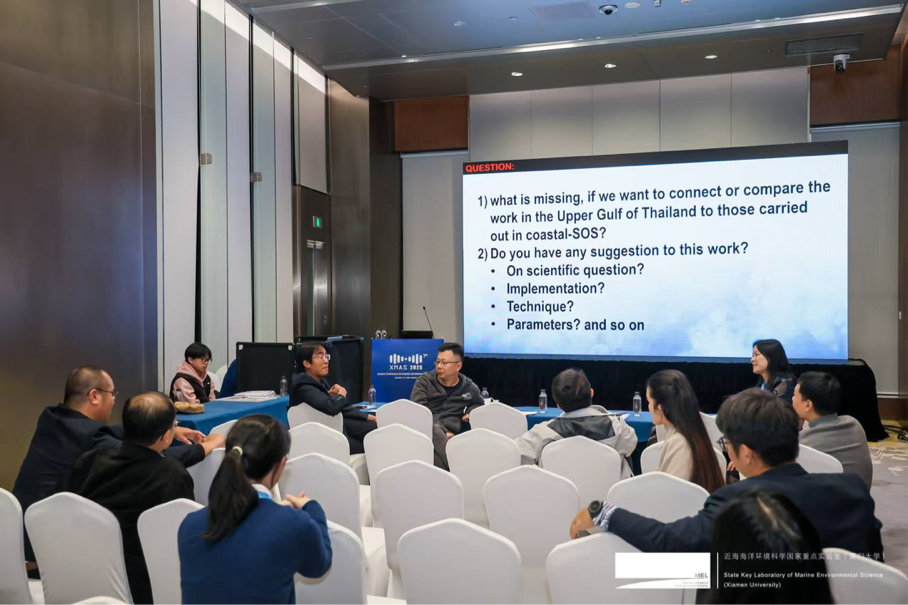
Discussion
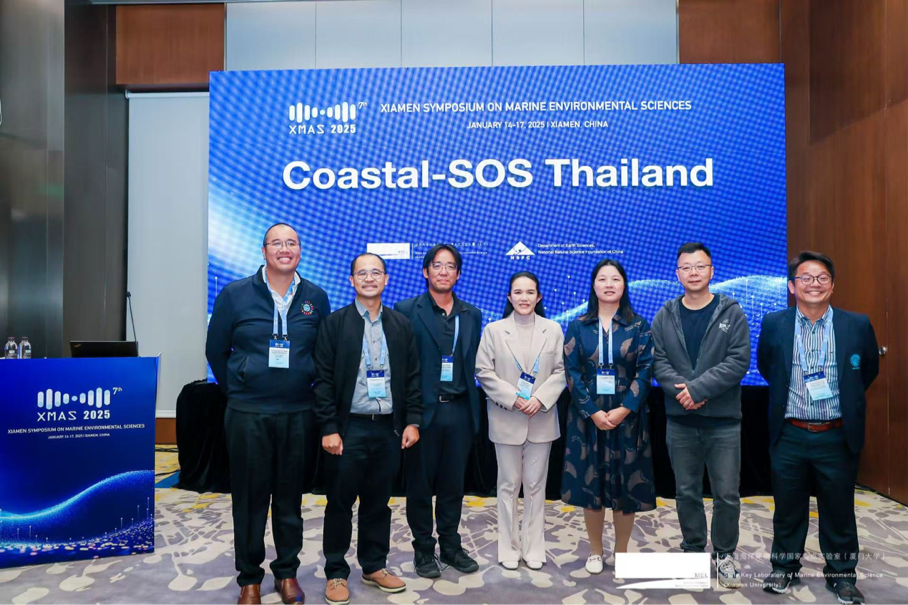
Group photo of the presenters
Townhall on Regional Modelling for the East Asian Seas and Western Pacific Ocean:
Experience and Perspective from MoNITOR and COASTAL-SOS
Numerical techniques for regional modelling help us to solve coastal zone problems by providing a better understanding of the complex relationship between human activities, climate change and sustainable development of the oceans.
At XMAS 2025, two UN Ocean Decade projects, MoNITOR and COASTAL-SOS, co-hosted a townhall on “Regional Modelling for the East Asian Seas and Western Pacific Ocean”. In the townhall, the MoNITOR project lead scientist Dr. Yuntao Wang from the Second Institute of Oceanography shared the progress and perspective of the “Mitigation of Natural Incidence Towards Oceanic Resilience” (MoNITOR) project, while Dr. Hongmei Chen from Xiamen University, Director of the COASTAL-SOS Project Office, shared the experience of applying the digital twins platform in the Coastal-SOS project, and highlighted the importance of facilitating communication and networking across borders for sustainable development goals. Dr. Tanuspong Pokavanich from the Kasetsart University shared the experience and knowledge from their research in the Gulf of Thailand, demonstrating the establishment of real-time stations to address hypoxia. He also emphasized the frequent water quality issues and the need for excellent projects to promote collaboration and draw attention to those with the power to change.
At the end of the townhall, Dr. Fei Chai from Xiamen University discussed with the participants, pointing out that the digital twins system is a key direction for future development. If there is a unified model for global water, it will be of great significance for marine science research. We also need to make good use of the United Nations as a network to promote international cooperation and exchanges, and help developing countries to improve their basic science and construction levels.
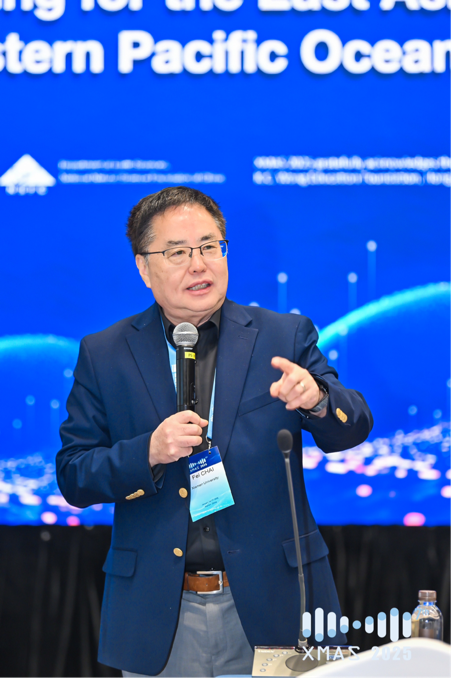
Moderated by Dr. Fei Chai
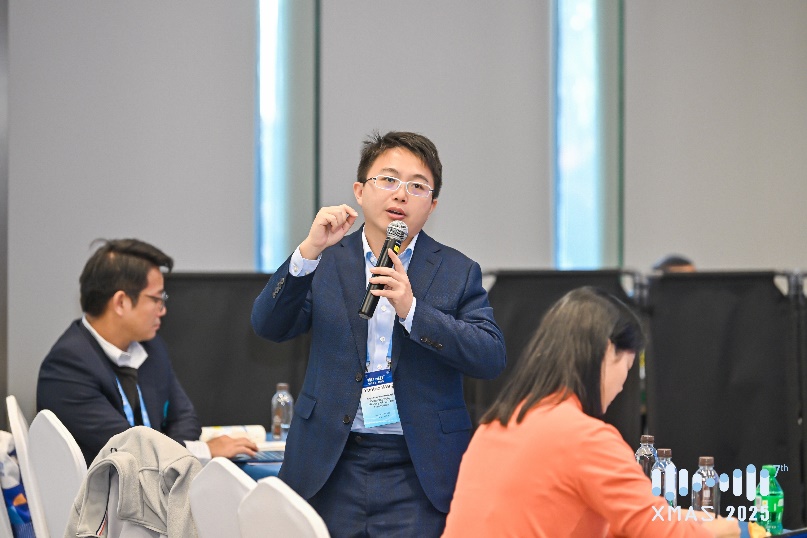
Experience Sharing of MoNITOR by Dr. Yuntao Wang
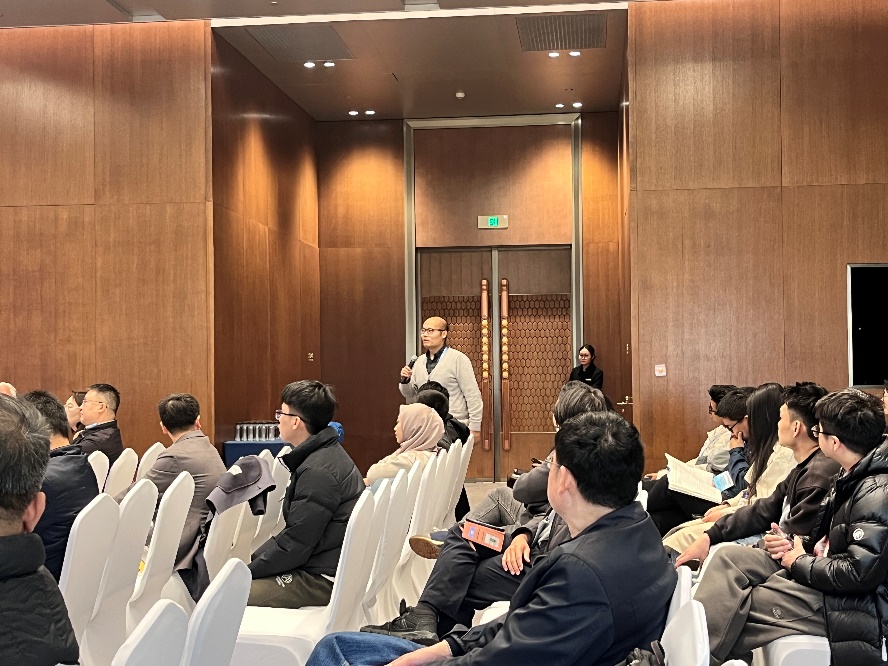
Discussion


